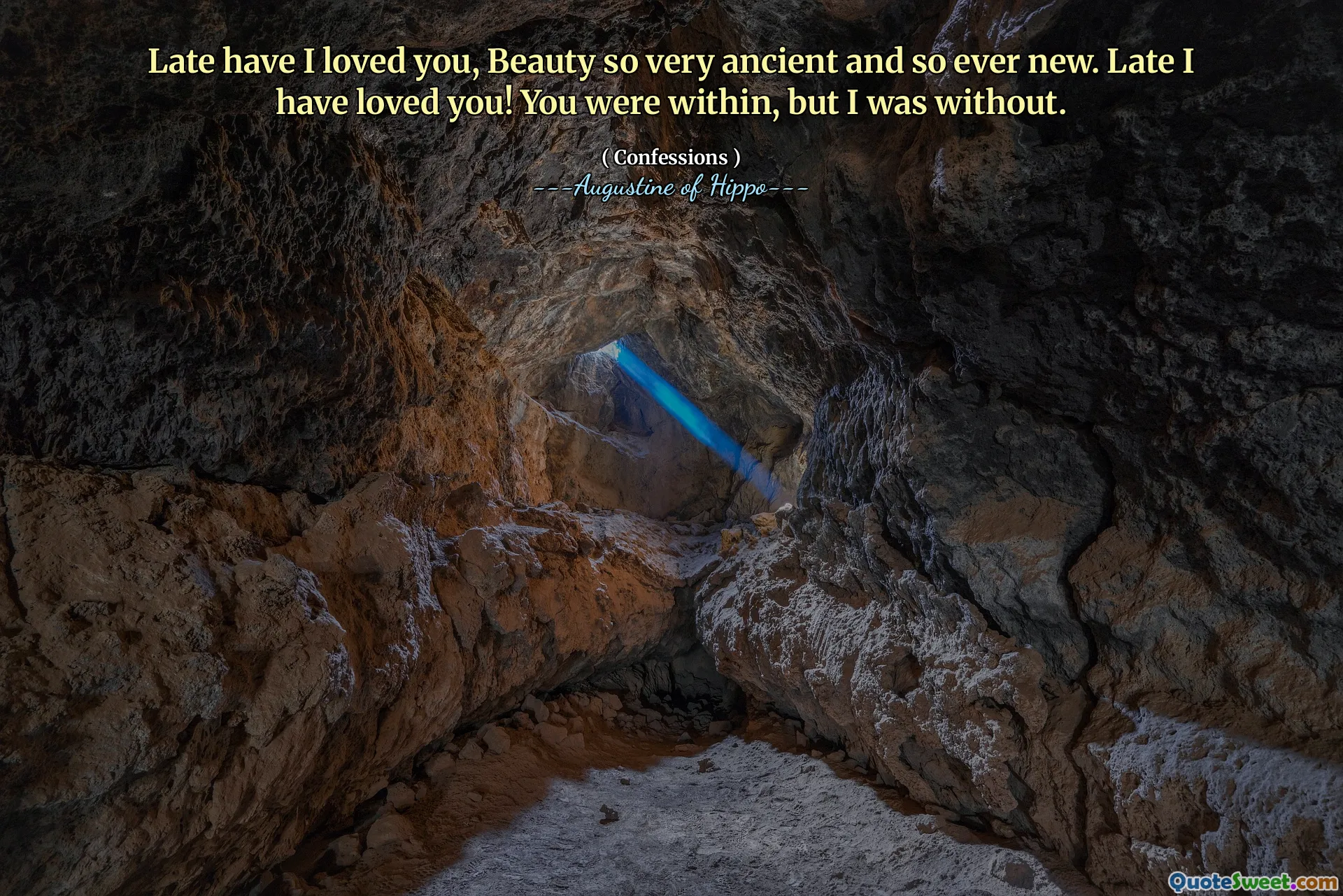
Late have I loved you, Beauty so very ancient and so ever new. Late I have loved you! You were within, but I was without.
This poignant reflection by Augustine of Hippo captures a universal human experience: the realization of lost or unrecognized love that has always been present. The phrase 'Late have I loved you' echoes a sense of awakening—an understanding that the divine or the ultimate beauty was within reach all along, yet it took time to see and accept it. The dichotomy between being 'within' and being 'without' highlights our often misguided pursuit of external validations or fleeting pleasures, overlooking the inner sanctuary of truth and divine beauty that resides inside us. It speaks to the idea that sometimes we chase after superficialities, unaware that the depths of genuine love and fulfillment are already embedded in our very core, waiting to be acknowledged. The recognition of this love's delayed arrival is bittersweet; it underscores regret, but also a deep appreciation for the journey toward awareness. Such introspection invites us to reflect on our own lives—how often do we overlook the beauty and love around us, only to realize too late that what we sought was always within us or nearby? It is a call to awaken to the present, to cherish what is within our reach, and to recognize that real beauty transcends external appearances, residing instead in our inner consciousness and connection to the divine. Augustine’s words remind us of the importance of being mindful and receptive to love and beauty, which are eternal and ever-present, yet sometimes elusive due to our distractions or ignorance.







